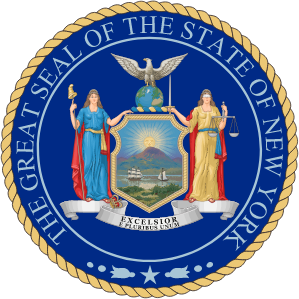Priorities
Our students, faculty, and staff are drawn to ESF because of our sustainability values, commitment, and penchant for action. We work to address the Earth’s most pressing problems – and they want to be part of the solution.
Identifying sustainability priorities is a campus-wide collaborative process at ESF. We also take care to align our efforts with larger New York state sustainability goals.
Sustainability Lens
We are so committed to sustainability that it is an overarching principle in ESF’s 2023-2028 Strategic Plan —meaning we look at every strategic goal through the lens of sustainability.
The priorities below are included within ESF’s Sustainability Action Plan — our roadmap to helping the College achieve its sustainability goals.
![Person holding up a flagpole [icon]](/sustainability/assets/lens-lead.jpg)
Leadership
Serve as the flagship SUNY institution: embodying operational sustainability and transparently sharing progress and areas requiring growth; offering a curriculum designed to educate future environmental leaders; and performing a diverse range of research to improve our world.
![Arrows forming a circle [icon]](/sustainability/assets/lens-circ.jpg)
Circularity
Reduce materials sent to landfill and incineration by 90% (2018 baseline) and achieve a diversion rate of 90%, through prioritizing reuse in general and durable items over single-use items to the greatest extent possible.
![Lightning bolt on a sun with rays [icon]](/sustainability/assets/lens-energy.jpg)
Energy Reduction
Source 100% of annual energy consumed from renewable energy systems and achieve a reduction in site Energy Use Intensity (EUI) of 50% (2007 baseline).
![CO2 neutral [icon]](/sustainability/assets/lens-carbon.jpg)
Carbon
Achieve carbon-neutral operations, and ultimately carbon negativity (climate positivity), through actions such as quantifying carbon offsets realized by sustainable management of forest properties.
![Scale with leaf on right side [icon]](/sustainability/assets/lens-esj.jpg)
Environmental and Social Justice
Recognize that diversity is a source of strength, creativity, and innovation and take deliberate actions to center environmental and social justice into operations, culture, academics, and research. Commit to building a community based on a foundation of mutual response, care, and belonging, that is welcoming for people of all lived experiences. Acknowledge this responsibility and accountability is shared among all members of the College and extends beyond the physical borders of ESF campuses.
![Group of people and talking bubble [icon]](/sustainability/assets/lens-comm.jpg)
Community Impact and Influence
Encourage and normalize institutional participation as a collaborative community partner focused on co-creating long-term, reciprocal, relationships and implementing sustainability and climate resiliency solutions where ESF campuses are located and beyond.
![Graduation cap over a leaf in circle [icon]](/sustainability/assets/lens-culture.jpg)
Campus Culture
Foster a thriving campus community by 1) establishing and communicating collaboratively developed College priorities, 2) providing appropriate resources to enable faculty and staff to engage in intentional, inclusive, and innovative program design, and 3) implementing processes that proactively address and prioritize the wellness of our students, faculty, and staff.
Want to Learn More?
Click the button for information about our programs dedicated to these priorities and related goals.

NYS Sustainability Directives
As a state institution, ESF is subject to sustainability-focused New York state and SUNY system directives, which include but are not limited to the following:
NYS Climate Leadership and Community Protection Act (CLCPA)
Requires NYS to achieve a carbon free electricity system by 2040 and reduce greenhouse
gas (GHG) emissions by 85% by 2050 (based upon 1990 baseline).
Executive Order 22
Directs state agencies to adopt a sustainability and decarbonation program. Includes
requirements related to procurement, renewable electricity, fossil fuel avoidance,
embodied carbon tracking, vehicle electrification, waste and circularity, harm reduction,
and more.
Executive Order 32
Establishes state agency food purchasing goals for NYS agricultural products.
SUNY Construction Fund Directive 1B-2
Defines goals and assists SUNY in achieving CLCPA, EO22, and SUNY Policy Compliance.
Food Donation and Food Scraps Recycling Law
Businesses that generate an annual average of at least 2 tons of wasted food per week
must donate excess edible food and recycle (compost) all remaining food scraps if
they are within 25 miles of an organics recycler.
SUNY’s Elimination of Single Use Plastics and Preference for Durable and Reusable
Alternatives Policy and Procedure
Eliminates the use of various categories of single use plastics over time and prioritizes
reuse over single use to avoid transitioning from one type of single-use product to
another.
SUNY’s Clean Energy Roadmap
Outlines a multitude of system wide goals and actions.
